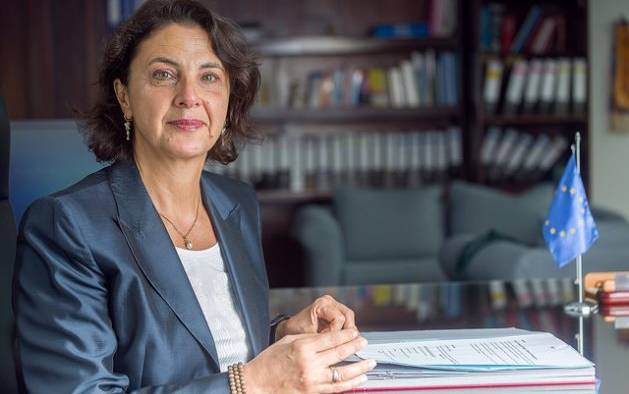International Women’s Day OpEd
By Ambassador Daniela Tramacere, head of the EU Delegation to Barbados, the Eastern Caribbean States, the OECS, and CARICOM/CARIFORUM
Today is International Women’s Day. It is not only a symbolic day on the calendar where the spotlight falls on women; it is an opportunity to seize and reflect on the progress made towards gender equality in all areas of our everyday life.
Equality between men and women was embedded in the 1957 Treaty of Rome establishing the European Economic Community, the forerunner to the European Union. Europe is a pioneer of gender equality. We work tirelessly to defend women’s rights and empower them in the fight against discrimination and gender-based violence.
Gender equality and empowerment of women and girls are fundamental human rights. Both are also vital for economic growth, prosperity and competitiveness. Gender equality is an essential precondition for equitable and inclusive sustainable development, which will not take place if half of the world’s population is left behind. That is why the achievement of gender equality and the empowerment of all women and girls is a key objective of the 2030 Sustainable Development Goals set by the United Nations.
Despite the progress made, the level of achievement of gender equality is uneven across regions and within countries. Worldwide, girls and women continue to be systematically left behind and discriminated against and persistent violations of their rights still occur on a daily basis. In Europe as well, and despite all the efforts being made, we still face many challenges.
In the Caribbean, women have made outstanding strides and in a few countries –Dominica, Jamaica, and Trinidad and Tobago for example- women have reached the highest levels of power. Yes, strides are being made as more women in the Caribbean are becoming decision makers, which suggests that inequality at the workplace is slowly becoming a thing of the past. Also in Barbados, one can see such progress.
Yet there are still glass ceilings to be shattered. In the region as well as in Europe, women are still generally underrepresented in politics and in boardrooms; domestic violence and sexual harassment in the workplace are too often commonplace — despite some laudable legislative efforts. As for violence against women and girls, it is one of the most widespread, persistent and devastating human rights violations in our world today.
The European Union is contributing to gender equality in the region by mainstreaming gender in all EU funded cooperation programmes as well as by funding specific gender equality actions. The EU has become more ambitious with the Gender Action Plan II and its vision for 2016-2020. Our “gender architecture” has evolved significantly. We have decided to focus on pivotal areas, which we think could transform the lives of women and girls if real action is taken by ensuring girls’ and women’s physical and psychological integrity; by promoting the social and economic rights/empowerment of girls and women; by strengthening girls’ and women’s voice and participation as well as by ensuring that we deliver on our commitment more effectively!
Last September the European Union launched its new global programme to end all forms of violence against women and girls — the “Spotlight Initiative”. Implemented by the UN and backed up by an unprecedented 500 million euros from the EU, the Initiative will place girls’ and women’s physical and psychological integrity at the centre of efforts to achieve gender equality and women’s empowerment. The name reminds us that violence often takes place in the dark, is denied or rendered invisible and that it cannot survive in the light.
However, it is not always about the big money, and I am particularly proud of a much smaller-scale project that was designed here in the Caribbean and is going global now: the EU-funded “None in Three” project has developed a serious pro-social computer game to teach children and young people about domestic violence. It has been scientifically proven to increase children’s empathy by enabling them to engage emotionally with the characters. Complemented by qualitative and quantitative research, training and a social media campaign, this highly innovative, first of its kind initiative is now being adapted in countries across the world: China, India, Jamaica, Uganda and the United Kingdom. It is a shining example of how Europe and the Caribbean can lead the way.
For me as a woman, it is easy not to forget the challenges women face every day — I am sure every woman has a story to tell. International Women’s Day gives all of us, men and women, an additional opportunity to take a moment to observe and become aware of the persisting gender gaps in our everyday life — and to take action for a more equitable, sustainable, progressive society.
The views expressed herein are those of the writer and do not necessarily represent the opinions or editorial position of iWitness News. Opinion pieces can be submitted to [email protected].
The opinions presented in this content belong to the author and may not necessarily reflect the perspectives or editorial stance of iWitness News. Opinion pieces can be submitted to [email protected].






